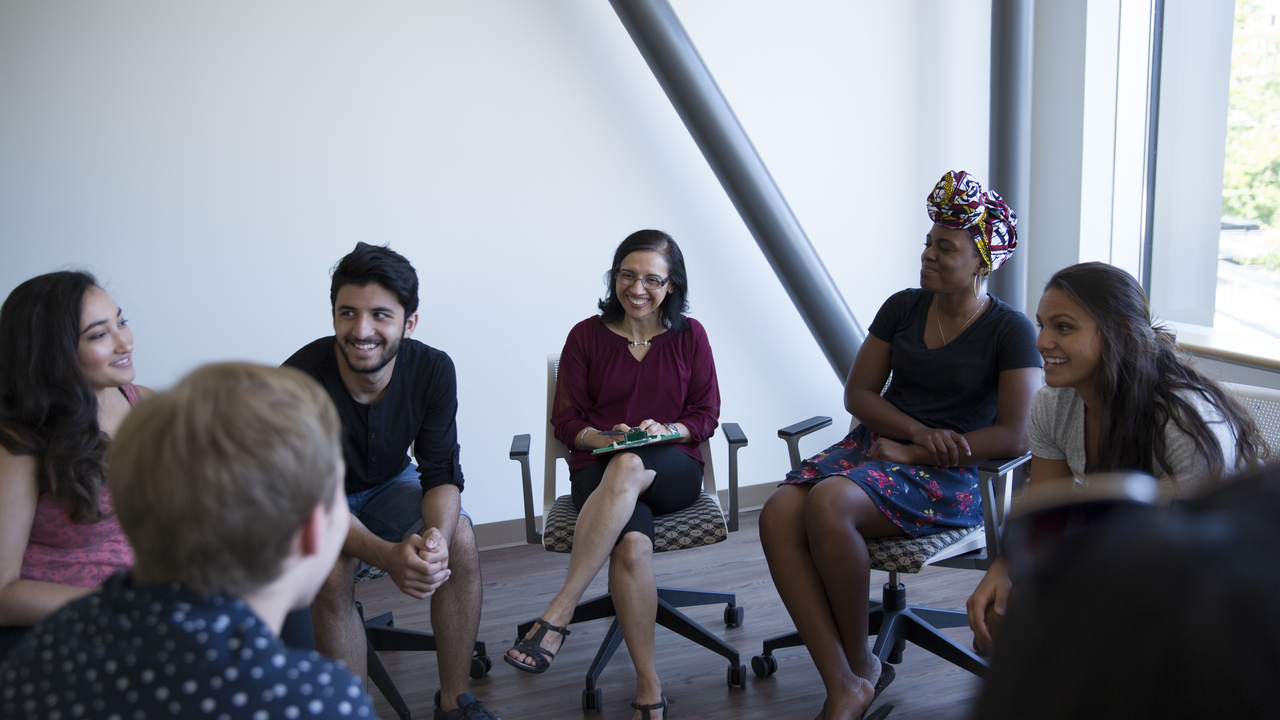
Tools and resources to help strengthen your personal wellness this fall
How to build health and wellness strategies into your student experience

How to build health and wellness strategies into your student experience
By Goldi Gill Campus WellnessWelcome (back) to campus, Warriors!
We understand that being a university student is a transformative time in your life. This means, your health and wellness are more important than ever, as you embark on (or continue) a journey with the varying demands of academics, job searches, co-op careers, new relationships, work, family and social activities.
We recognize that stress affects everyone differently and the transition to a new campus environment may bring more challenges, particularly for those who are away from home for the first time, international students, members of 2SLGBTQIA+ community, Indigenous students and those from all equity-deserving groups.
 Our vision is wellness for all and we strive to accommodate everyone's unique and individual needs. We invest in students’ mental health and wellbeing and aim to create a healthier campus environment, physically and mentally. Our medical and nursing staff, counsellors and health promoters are all working to meet these needs and make your experience at Waterloo the best it can possibly be.
Our vision is wellness for all and we strive to accommodate everyone's unique and individual needs. We invest in students’ mental health and wellbeing and aim to create a healthier campus environment, physically and mentally. Our medical and nursing staff, counsellors and health promoters are all working to meet these needs and make your experience at Waterloo the best it can possibly be.
To be your best, it’s important to take care of your personal wellness, which includes your physical, emotional, mental and spiritual health. To help you on your journey to taking good care of yourself, consider some of the many programs and services available to you.
While doing well in your courses is important, we also understand the value of you taking breaks from your studies. One great way to recharge is to participate in the many campus recreational activities that are available to students.
Another way to support your wellness is to stay connected. Relationships can help you stay well and establish a sense of belonging as you navigate the excitement and challenges that university can bring.
If you need additional support, counselling appointments provide you with services to lead a healthy and balanced life in the form of one-on-one. If you prefer to participate in more mind-conscious activities that can help boost motivation and contribute to long term success, you might find something that suits you from our upcoming events and resources this semester.
We’re here for you. Whether you need primary medical care, counselling appointment or nutrition services, you can call Campus Wellness between 8:30 a.m. and 4:30 p.m. at 519-888-4096.

After hours and emergency contacts are available to assist students in getting help.
Mental health crisis support is also available through Here 24/7: 1-844-437-3247 and counselling support is provided 24 hours a day through Empower Me: 1-833-628-5589. For more information about Empower Me, students are encouraged to check out the Empower Me WUSA website.
It is also important to remember, the fall season means an increase in respiratory illness as we spend more time indoors with groups of family and friends. We can help protect ourselves and others by getting the flu vaccine and a booster shot for COVID-19. These vaccines will be available at Campus Wellness, Health Services so keep watching for information starting in October.
Goldi Gill is the Executive Director, Campus Wellness at the University of Waterloo.

Read more
How Doug Kavanagh’s software engineering degree laid the foundation for a thriving career in patient care

Read more
Upside Robotics secures new funding to accelerate the future of sustainable farming

Read more
Discover the meticulous work that uncovered Black stories on campus and preserved them for the future
The University of Waterloo acknowledges that much of our work takes place on the traditional territory of the Neutral, Anishinaabeg, and Haudenosaunee peoples. Our main campus is situated on the Haldimand Tract, the land granted to the Six Nations that includes six miles on each side of the Grand River. Our active work toward reconciliation takes place across our campuses through research, learning, teaching, and community building, and is co-ordinated within the Office of Indigenous Relations.